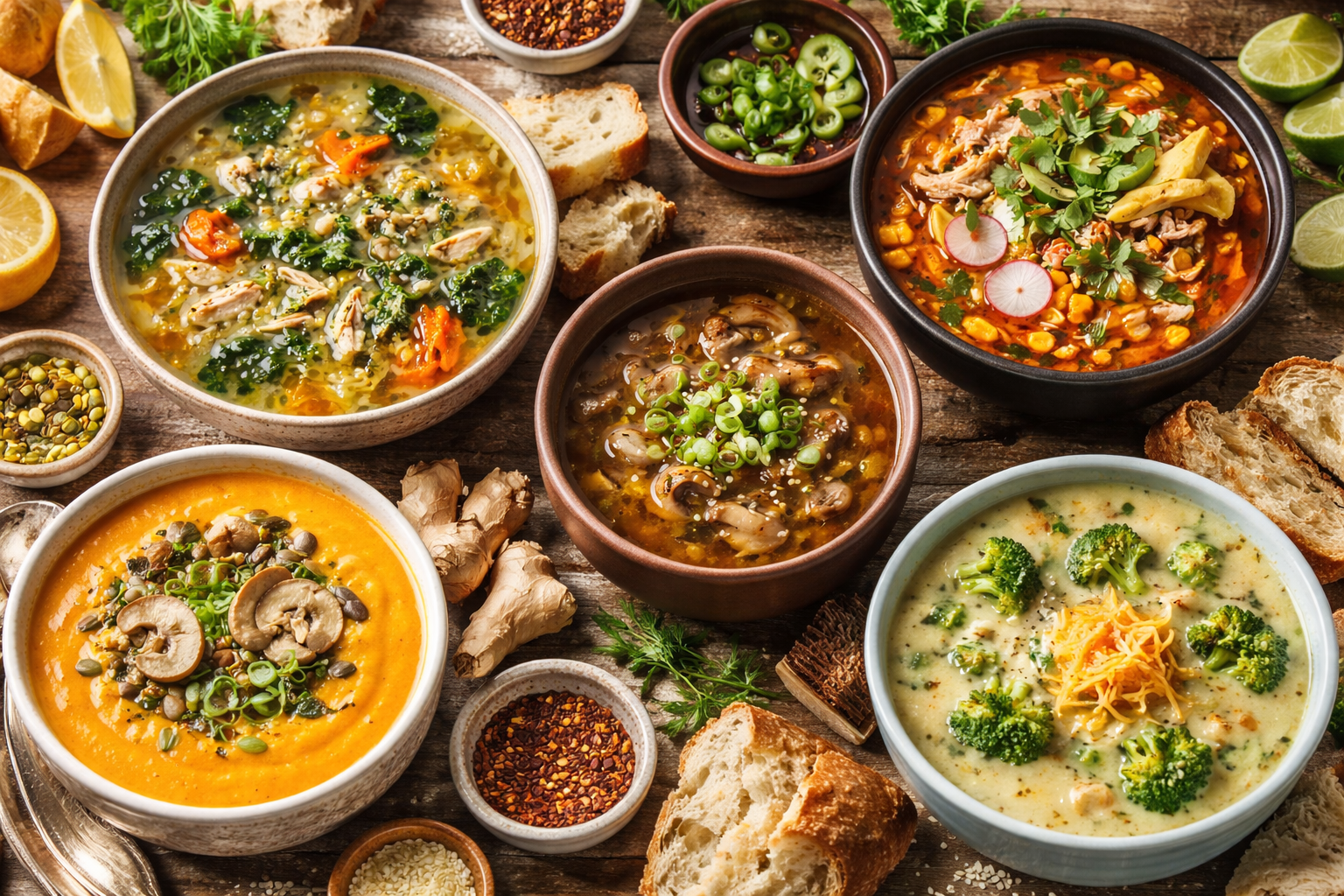A taste of tomorrow: Insights from The Generative AI Food Pioneers Summit, London 2023
The recently held Generative AI Food Pioneers Summit, London was a remarkable gathering of food and beverage industry leaders, AI experts, and social media influencers, and more. The event focused on how AI and human creativity come together in the melting pot of food and beverage. Here are the Summit’s highlights:
1. Creating retail-ready products in real time
In a session led by Kate Burns, CEO and Founder at 6 Seeds and a Waitrose panel of experts, the team discussed their partnership with Tastewise. The key takeaways include:
- Tastewise plays an important role in expediting data collection, trend identification, and new product development. This streamlined their workflow and resulted in more data-driven decision making.
- Tastewise enriched the reader experience by providing tailored, personalized content through trend insights. It strengthened the connection with readers and improved content quality.
- The importance of synergy between humans and AI with AI complementing human creativity and efficiency, making data-driven decisions and risk mitigation more accessible. Human expertise, however, remains irreplaceable.
- During the session, an Indian Mexican Fusion Taco recipe was cooked using Tastewise’s Concept Discovery. This demonstrated how AI can blend technology with traditional cooking to inspire new recipes.
2. Navigating change in the food industry
Tom Hawden, in his foodservice keynote, discussed the transformative impact of the COVID-19 pandemic on the food industry, and his most salient points were:
- The pandemic pushed the food industry, including Kraft Heinz, to become more agile, consumer-centric, and innovative.
- Technology, like Tastewise, enables companies to stay ahead by providing real-time data on food trends. This empowers businesses to respond swiftly to emerging market trends.
- Transforming trends into trials and tests allows for continuous innovation. Learning from both successes and failures drives improvement.
- To thrive, organizations must embrace a cultural shift, welcoming technology, taking calculated risks, and valuing learning and innovation.
- A core value like “dare to be better” encourages boldness, adaptability to a changing marketplace, and turning trends into actionable insights.
- The journey of adaptation and innovation is ongoing. Mistakes are viewed as opportunities for growth. Embracing technology and being bold are essential for success.
These insights extend beyond foodservice and apply across the industry. Agility, adaptability, data-driven decisions, and a culture of learning are essential for staying competitive.
3. Insights, foresight, and data-driven decisions
Experts from Katie Kaylor Global CMI Foresight at Mars, Tatiana Luschen Consumer Sensory Insights Manager Innovation & Customer Foresight Europe at Givaudan, and Sioned Winfield Global Marketing Director, Insights Digitalization at PepsiCo discussed the critical role of insights and foresight in their organizations. Key takeaways were:
- For informed decision making, companies need both current insights and future foresights. They help understand what’s happening now and what might happen next.
- Finding the right balance between global and local strategies keeps businesses competitive. Focusing on foresights means planning for the future.
- While insights address today’s needs, foresights prepare for tomorrow. Investing in digitalization and foresights is crucial to stay ahead.
- Insights have evolved from asking questions to observing online behavior. The future involves self-service tools and AI collaboration.
- Being open to change and working together are vital. With disruptions and changing preferences, adaptability and collaboration are key in the food and beverage industry.
- When creating products, consider what customers want, if it can be made, and if it makes financial sense. Balancing these aspects is the path to success.
4. Social media, AI and influencer trust
Renowned baker and social media influencer Matt Adlard’s session explored the evolution of social media, from its early days to the present dominance of platforms like Instagram and Facebook Live. The key themes and takeaways from his discussion include:
- Social media’s changing landscape necessitates ongoing influencer adaptation.
- AI plays a pivotal role in expediting content creation, benefiting influencers, particularly in areas like recipes and blogs.
- Trustworthiness of virtual influencers poses questions for brands.
- Building genuine communities and maintaining authenticity are critical for influencer success.
- Granting influencers creative control fosters more authentic collaborations.
- AI’s hyper personalization holds promise for influencer content recommendations.
- The influencer industry operates at a rapid pace, demanding ongoing adaptability for sustained success.
5. Crafting agile consumer-centric CPGs with AI
Christel Adam International Consumer & Culinary Experience Director at Kraft Heinz and Mark Donovan Botanical, Flavours & Innovation Director at Tata Consumer Products Ltd discussed AI’s transformative potential in the consumer packaged goods (CPG) industry. They emphasized:
- AI has supercharged innovation in the CPG industry, enabling faster idea generation, design thinking, and consumer testing. While AI is a powerful ally, it can’t replace the creativity and sensory insights of humans in product development.
- AI, especially tools like Tastewise, has revolutionized how companies gather consumer insights. It facilitates quick iterations, trend tracking, and message refinement based on customer preferences. AI plays a critical role in understanding consumer tastes and optimizing product recipes.
- Embracing AI comes with its challenges and boundaries. Job security concerns have surfaced, but it’s widely accepted that AI won’t entirely replace human roles, especially those requiring sensory experiences like food tasting. Establishing clear boundaries and securing sensitive information in the fast-paced AI environment is vital. Recognizing and managing potential biases in AI-generated content is also essential. Overall, companies should welcome AI while remaining aware of its limitations and ethical considerations.
6. Pioneering generative AI’s impact on marketing
Yonca Dervisoglu, VP Marketing at Google, discussed AI’s transformative impact on Google’s marketing landscape. Insights from her talk included:
- Adapting to change is crucial for success in today’s business landscape. Companies must be open to embracing new technologies like AI to thrive in rapidly evolving environments.
- AI is a transformative force affecting various aspects of society and business, from optimizing traffic lights to addressing environmental issues. Early adopters of AI and emerging technologies are likely to gain a competitive edge.
- Marketing strategies are evolving alongside changes in consumer behavior and media consumption. To connect effectively with consumers, AI tools are essential for gaining insights, understanding user preferences, and delivering personalized content.
- Google recognizes the significance of responsible AI usage. The company is actively engaged in both innovation and regulation to ensure AI development and deployment are carried out responsibly. Balancing possibilities with responsibilities is a key part of Google’s strategic approach to AI.
7. The role of AI in content creation and community building
Ben Ebbrell, CEO and Founder of Sorted Food, shared how AI enhances content creation and community engagement. Noteworthy takeaways were:
- Sorted Food utilizes AI to bring photos to life, transform content formats, and make it more engaging. This approach shows the importance of adapting to technology to address food-related challenges effectively.
- Sorted Food recognizes its global audience as influencers and themselves as curators, emphasizing the importance of listening to a worldwide audience for insights.
- AI complements Sorted Food’s engagement with its YouTube audience, highlighting the potential of AI-human collaboration in content creation and engagement strategies.
- Sorted Food aims to unite individuals with shared interests and ideas, requiring technology to process and manage vast amounts of data effectively for the benefit of the community.
The recurring theme at the Summit emphasized AI’s role as a creative collaborator, not a substitute for human inventiveness. It streamlines operations, offers valuable insights, and accelerates innovation. For more highlights from our London Generative AI Pioneers Summit, visit our website.




